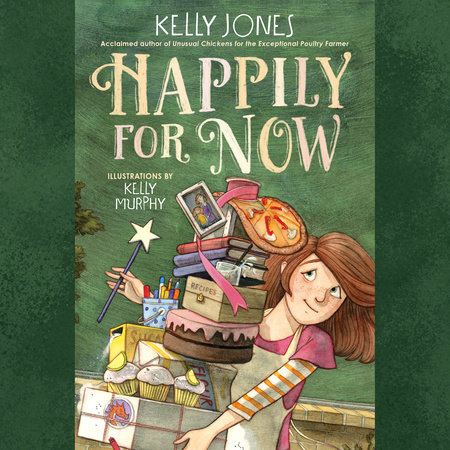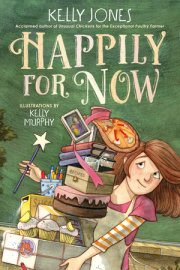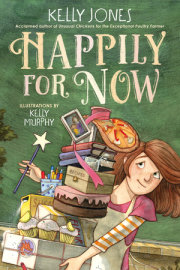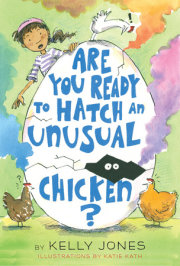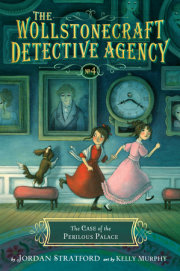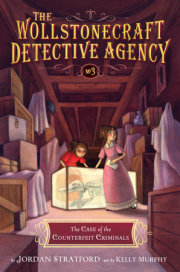1
Things are a lot simpler in fairy tales. I mean, when you read about some girl going around covered in ashes who gets treated way worse than her stepsisters, it’s pretty clear somebody should get that girl some help.
Then again, who knows what she thought when she woke up every morning? Maybe she thought, Well, things could be better, but they could be a lot worse, too. (Trust me, they could--and in lots of fairy tales they are. If you’ve ever read the original versions, you know they get gruesome fast.) Maybe she was glad her stepmother was bugging her stepsisters instead of her about what they wore or why they didn’t go out and find someone rich to marry. Maybe she was okay with doing her own thing.
You get used to what’s normal for you. You might think it’s not that big a deal when Mom doesn’t bring food home, because at least the cupboards aren’t as bare as Old Mother Hubbard’s. It doesn’t really matter if she doesn’t pay a bill and the lights in your apartment don’t work for a couple of days, because nobody had electricity in any of those stories, and they got by. And if your mom doesn’t come home when she’s supposed to, well, she probably didn’t get turned into a swan or fall asleep for a hundred years. She’s probably just really late. Again.
But even in our everyday world, someone could be keeping an eye out, watching to see if you need some help. If you do need help, and if you’re lucky, you get a fairy godperson. Ms. Davis is mine. She’s very good at her job.
I don’t remember when I first met Ms. Davis--years and years ago. She works for a community program that helps families work through their problems and find help when they need it. Sometimes, when things are going pretty well, I don’t see her much. But this wasn’t really one of those times.
When my mom told me I had to go stay with relatives I don’t even know, I called Ms. Davis. I keep one of her business cards by the phone, and another with my important stuff, so I always know how to reach her.
As soon as I heard her voice, I felt calmer. She suggested we get together the next day and talk, and I agreed.
When I got out of school, she was waiting in her old blue Toyota, right where she said she’d be. I ran over, and when she got out and gave me one of her big squeezy hugs, I knew things would be okay.
She let go of me and opened the trunk so I could put my backpack inside while we walked. “Shall we go to the track?”
“Sure,” I said. Ms. Davis’s doctor says it’s a good idea for her to get some exercise. But she gets bored doing laps on her own, and I don’t mind walking with her while we talk. This way, we help each other get things done.
I stayed quiet while we walked down the street to the track, filled up our water bottles, and put our sunscreen on. I didn’t really know what to say.
Nobody who saw us would think we were working on fairy-godperson stuff. There weren’t any carriages or pumpkins or princesses--just the springy brown rubber track, marked off in walking lanes and running lanes, with a few rows of empty bleachers and a chain-link fence. But when I looked at Ms. Davis, I didn’t just see her hot pink walking shoes and her black braids and her dark brown skin and her look that said, You called me--remember? I saw someone who knows how to make things better. Even if I’ve never seen her with a magic wand.
But she can only help me if I tell her what’s going on. She has a lot to say about those fairy godpeople in stories who decide what’s best for other people before talking it out. She says that’s no way to behave, wand or no wand.
I took a deep breath and looked at my sneakers. “I don’t want to live with people I don’t know. I want to stay here with my mom.”
“I can understand that,” Ms. Davis said. “Change isn’t easy for me, either. But when you gathered your courage last week, you told your mom you wished she’d stop waiting around for things to get better and start working on her addiction. Is that still what you want?”
Ms. Davis believes in calling things what they are. You don’t fix things by pretending they’re something else. She let the question hang in the air between us as we followed the curve in the track.
“Yeah. But I could help her,” I said at last. “I know she has to work on her problems. But who’s going to look out for her if I’m not around?”
“That sounds like an important question to ask her,” Ms. Davis said. “But let me ask you this: If your mom says she’s found a program with people she trusts, people who can help her work on those problems, only she needs to be able to give it her full attention, what would you say?”
I gulped down some water. “I wouldn’t distract her,” I said quietly. “I know how to take care of myself. It would be like I wasn’t even here.”
Ms. Davis gave me a long look.
I could see my own face reflected in the mirrors of her sunglasses: two tiny white faces under a lot of red hair, looking scared and sad.
“And would that be fair to you?”
I wanted to say yes. But Ms. Davis says you shouldn’t say the first thing that comes into your head without thinking about it. That’s definitely true for fairy tales, too. That’s how people start out with wishes and end up with sausages stuck to their noses. (Look it up, if you don’t believe me.)
“This isn’t how my wish was supposed to work.” My voice felt as small and as scared as my reflection.
“You and those stories.” Ms. Davis shook her head and sighed. “Fiona, we’ve talked about this. It takes more than wishing to make things better.”
My voice got louder. I hated that I couldn’t stop it. “I told her I wished she’d do what moms are supposed to! I didn’t tell her to send me away!” I rubbed my sleeve over my eyes. If I’d just kept quiet, none of this would have happened. A mean little voice in my head said, If you were really my fairy godmother, you would have made my wish turn out right. But I kept my lips tight together and didn’t let that voice out. I know wishes aren’t that simple.
Ms. Davis stopped walking. She turned and put her hands on my shoulders. “Take a breath, Fiona. I need you to listen to me,” she said quietly. “This situation is not your fault. You didn’t cause your mom’s addiction, and you can’t control it, any more than you could any other disease. Right?”
I was crying now, too hard to answer, so I just nodded. She got her pocket tissues out and handed me one. Fairy godmothers are always prepared.
And they have a lot to say, even when you don’t really want to hear it. “Breathe with me for a moment.” Her voice was calm.
I did, crushing the soggy tissue into a ball. We stood there and just breathed until I could look up and listen again.
Ms. Davis nodded, satisfied. “I’m so proud of you, Fiona. You told your mom what you needed to tell her. I hear you. This next step on the journey isn’t what you hoped for. But everybody’s got their own job to do. Yours was to tell her what you were holding inside you--where you want that journey to end up. Now hers is to figure out the best way to get herself there. You don’t get to decide that for her. And when she asks you for some help, I’d like you to stop and consider whether that’s help you’re willing to give.”
“Of course I can help her!” I said. “That’s what I’ve been telling you!”
Ms. Davis raised her eyebrow above her sunglasses. “Even if the help she asks for--the help she says she needs right now to make things better for both of you--is to give her some space while she’s at this program?”
We walked a whole lap in silence while I thought about that.
“I still want to help her,” I said finally.
She smiled at me and squeezed my shoulder. “I’m glad to hear it. You know how hard it is to ask for help. I hope you’re proud of her for asking.”
I nodded. Just because she was right didn’t mean I had to be happy about it.
“Are you ready to give her the help she asked for, instead of the help you’d like to give?”
“I guess so.”
We walked in silence for a while, until we passed the bleachers again.
Then Ms. Davis gave me one of her special fairy-godmother looks, the kind that can see all the way through you. Fairy godpeople have to be able to do that, or how are they going to figure out what you wish for in your most secret of hearts? “This is a lot to be dealing with, Fiona. How are you feeling about it?”
I took a deep, slow breath, all the way in, and then let it all the way out. “Pretty mad, I guess. But I’m ready to focus on the positive now.” There’s no point trying to hide anything from a really good fairy godmother like Ms. Davis. But I’ve learned I can change the subject sometimes.
Ms. Davis nodded very slowly, like she knew exactly what I was doing but had decided to let me get away with it, for now. “One positive I see is that your mom is ready to get some help. She needs some new tools, and it will be much easier for her to focus on what she’s learning if she knows you’re safe with family. I do wish this part was easier on you, though. What positives do you see?”
I held up a finger. “One: the relatives I’ll be staying with definitely need some help.”
Ms. Davis’s eyebrows went up. “And you know this how?”
“Because I read the email Great-Aunt Alta sent Mom,” I said. “Yeah, she said I could stay with them. ‘Anything for Robert’s grandchild’ was how she put it. That’s me. But then it was all doom this and gloom that, and oh, by the way, they’re probably going to lose their bakery and move, but not until fall, so whatever.”
Ms. Davis lowered her sunglasses and gave me a look over the top. “When did reading other people’s emails without their permission become okay?”
“When my mom decided to send me away to live with people like that,” I shot back, folding my arms. Then I stopped myself and took another deep breath. I was focusing on the positive, after all. “Anyway, it proved they have a lot of problems.”
“And this is a positive because . . . ?” Ms. Davis waited, still looking me right in the eye.
I put my chin up. “How am I going to learn to help people the way you do unless they have problems? I know you think I’m too young, and I should just enjoy myself. But I can’t. Not when I’m going to stay with people I don’t even know. If Mom has to concentrate on learning her stuff, fine. I’ll focus on learning mine, too. It’s the perfect time to start my fairy-godperson training. What else is there for me to do there? Wait around for my happily-ever-after, like I was some princess?”
Ms. Davis opened her mouth, all ready to argue, like she does every time I bring up anything about fairy godpeople. She always says that’s not her job at all; her job is helping people make their own lives better, and that takes work, not wishes. I’ve tried to explain that sometimes hard work isn’t enough--people need magic. You can’t fix a curse like my mom’s with stuff like deep breaths. But that’s one area where we just don’t agree.
Then Ms. Davis stopped herself and took a minute to think. She looked at me hard, like she was seeing me with her magic as well as with her eyes. “Maybe it is the right time for you to start learning a few things,” she said slowly. “Fairy-godmother training, huh?”
I shook my head. I’d thought this all through a long time ago. “I might need to help people who are older than I am, so why would I call myself their mother? That’s just weird. I’m going to be a fairy godperson.”
Ms. Davis gave that some thought. “And what kind of training would teach you that?”
“You know--how to help people focus on the positive, and figure out what they wish for, and speak up about it. And how to make it happen, without getting all discouraged.” I hesitated. “How to grant wishes, too. But I guess that part comes later.”
Ms. Davis nodded, still thinking. “I suppose I could send you some lessons. But if you truly want to learn to help people, you’re going to have to put the work in and pay attention to what’s really going on. A helper--or a fairy godperson, for that matter--who barges forward without paying attention is worse than no help at all.”
I grinned and hugged her. “Deal.” Ms. Davis doesn’t mess around when it comes to important stuff. She sets her expectations high, so you’d better start working to meet them. But I knew I could do it. I had to, or who was going to help my mom? I’d let her try it her way first, because that was the help she asked me for. And then I’d come home, ready to really help her.
“Good,” Ms. Davis said, sliding her sunglasses back up in place and starting to walk again. “I’ll send your first lesson in an email before you leave. When you get there and get settled, you can write and tell me how things are going. Now, back to this world for a moment. I’d like to hear more about how you’re getting there, and if there are any other things we should talk about, like what to pack, or what might help you feel more comfortable there.”
We did three more laps while I answered all her questions and talked through the things she wanted to talk about, like who my temporary fairy godperson was going to be for the summer. He’s not my official helper, just a friend of hers with the same training she has. But she said that I could call him, the same way I could call or email her, if I wanted or needed to.
Copyright © 2021 by Kelly Jones. All rights reserved. No part of this excerpt may be reproduced or reprinted without permission in writing from the publisher.

